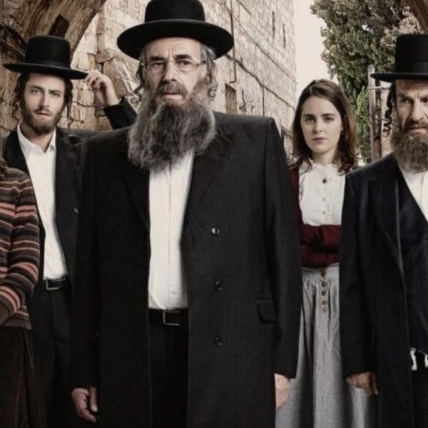
News

What the popularity of ‘Shtisel’ tells us about the non-orthodox majority
DANIEL TREIMAN
That was the scene last week when the citadel of high reform Judaism on Manhattan’s Upper East Side was overtaken by Shtisel-mania.
Fans of the Israeli TV series about the day-to-day dramas of a haredi – that is, ultra-orthodox – family in Jerusalem filled the Fifth Avenue synagogue to see the show’s three stars discuss their surprise Netflix-streamed hit. Demand was so intense that the organisers – Emanu-El’s Streicker Center, The Jewish Week Media Group, and UJA-Federation of New York – added a second night when the first quickly sold out. About 4 600 attended over the two nights, according to the event’s sponsors.
The first night at Temple Emanu-El, the three “Shtisel” actors – Dov Glickman, who plays family patriarch Shulem Shtisel; Michael Aloni, who plays his son Akiva; and Neta Riskin, who plays daughter Giti – and show producer Dikla Barkai seemed as surprised as anyone at their show’s success, marvelling at the crowd of thousands assembled before them.
They recounted their more modest initial expectations for the show. Aloni said Shtisel didn’t exactly have the hallmarks of an international hit: there is no sex or car chases.
“We all shared this feeling that we were doing something great that no one would watch,” he said.
Yet, this quiet show about private family dramas in Jerusalem’s insular haredi community made a big splash. In Israel, where Shtisel first aired in 2013, its popularity bridged the secular-religious divide. Its two seasons cleaned up at the Israeli Television Academy awards, while TV-less haredi Jews found ways to watch avidly and surreptitiously.
But it wasn’t until Netflix picked up the show in December that Shtisel got a second life as an international sensation. Now, there are plans for a third season and also for an American version set in Brooklyn.
To what does Shtisel owe its popularity? For starters, it’s just excellent TV: superbly written, well acted, with compelling characters, and rich story lines. There’s also, no doubt, a certain voyeuristic appeal: an opportunity to gaze into a mysterious and cloistered world.
For many Jewish viewers, I suspect, curiosity about our haredi kin is a significant part of the show’s attraction. We non-haredi Jews can appreciate that haredim are connected to us, that they are, in some sense, our mishpocha (family). Yet, our connection to the haredi world is attenuated by a profound religious chasm. Shtisel allows us to bridge that divide from the comfort of our couches.
That’s because the show’s themes are deeply relatable: love, longing, loss, fidelity, and infidelity, filial and parental responsibility, conformism and rebellion, and dreams, both chased and crushed.
Shtisel is fundamentally about its characters’ relationships played out within the confines of their community. The outside world intrudes only sparingly – the American soap operas enjoyed by Shulem’s mother, much to her pious son’s dismay; the overheard roar of a military air show on Israel Independence Day; the “damned evil people”, a phrase invoked by Shulem’s brother Nuchem to decry unseen but hostile outsiders.
Even Akiva, whose dream of a career as a painter is scorned by his father – a religious scholar with a low regard for any arts that are not culinary – but encouraged by a secular patron, keeps the nonreligious world at arm’s length.
While Shtisel is a show about a haredi family, Judaism is not the show’s subject. It is, rather, the show’s context. For the entire first season, we do not so much as see the inside of a synagogue. But every aspect of the Shtisels’ everyday lives is suffused with Jewishness, from the way the characters dress to the words they use to the way they greet one another to the blessings they utter before they take a sip of water.
This is one way in which Shtisel differs from the recent bumper crop of shows with Jewish protagonists.
The show’s characters inhabit a thick and rich Jewish context. And that is what makes the universal human stories at the heart of Shtisel into a great Jewish drama.




